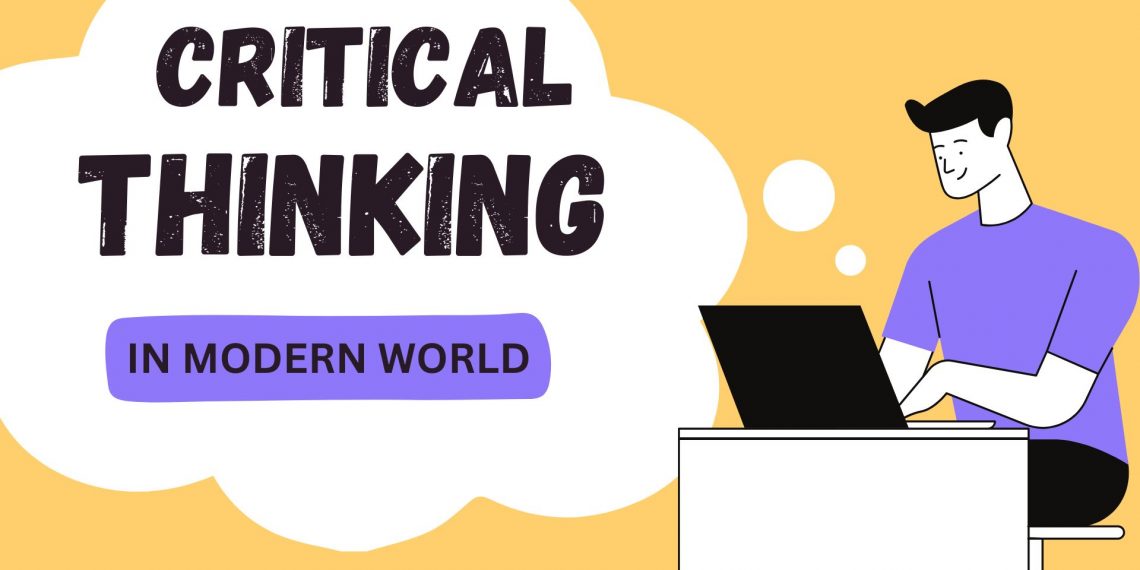In a world inundated with information, where opinions clash and ideologies collide, the ability to think critically has become paramount. Critical thinking is more than just a skill; it’s a mindset, a way of navigating the complexities of our reality with clarity and discernment. In this blog, we’ll delve into the profound value of critical thinking in the modern world, exploring its significance, its applications, and its transformative power.
Understanding Critical Thinking
Fundamentally, critical thinking is the process of analyzing, assessing, and synthesizing data in order to arrive at well-reasoned conclusions and make defensible decisions. It involves raising doubts about presumptions, confronting prejudices, and taking an open-minded approach to issues. Critical thinkers probe deeper, looking for underlying truths and hidden intricacies, not satisfied with knowing at the surface level.
The ability to think critically is essential in the fast-paced, constantly-changing world of today. When it comes to political discussions, scientific disputes, or moral quandaries, having the capacity to critically think enables us to confidently and clearly navigate the numerous voices and perspectives. It gives us the ability to distinguish reality from fiction, truth from falsity, and to make wise decisions based on logic and supporting data.
The Value of Critical Thinking
Empowering Individuals
Critical thinking empowers individuals to think for themselves, to question authority, and to challenge the status quo. In a society that often prizes conformity over creativity, critical thinkers are catalysts for change, pushing boundaries and expanding the realm of possibility. By cultivating a habit of critical inquiry, individuals can break free from the shackles of dogma and forge their own path towards truth and understanding.
Fostering Intellectual Curiosity
At its heart, critical thinking is driven by intellectual curiosity – a thirst for knowledge and a hunger for understanding. By encouraging us to ask probing questions and explore diverse perspectives, critical thinking fuels the fire of curiosity, inspiring lifelong learning and personal growth. In a world where information is abundant but attention spans are fleeting, cultivating a spirit of curiosity is essential for intellectual vitality and engagement.
Enhancing Problem-Solving Skills
In an increasingly complex and interconnected world, effective problem-solving skills are in high demand. Critical thinking equips us with the tools to dissect problems, identify underlying causes, and devise innovative solutions. By approaching challenges with a critical eye and a creative mind, individuals can overcome obstacles and seize opportunities for progress and innovation.
Promoting Civic Engagement
In a democracy, informed citizenship is the cornerstone of a healthy society. Critical thinking plays a vital role in fostering civic engagement, enabling individuals to assess political rhetoric, evaluate policy proposals, and participate meaningfully in the democratic process. By equipping citizens with the skills to critically evaluate information and engage in reasoned debate, critical thinking strengthens the foundations of democracy and promotes social cohesion.
Applications of Critical Thinking
Education
In the realm of education, critical thinking is a fundamental skill that transcends disciplinary boundaries. Whether in the sciences, humanities, or social sciences, critical thinking is essential for deepening understanding, fostering intellectual independence, and preparing students for success in an increasingly complex world. Educators play a crucial role in nurturing critical thinking skills, providing students with opportunities for inquiry, reflection, and debate.
Media Literacy
In an era of fake news and misinformation, media literacy has never been more important. Critical thinking is the cornerstone of media literacy, enabling individuals to discern credible sources from unreliable ones, to evaluate the accuracy and bias of information, and to resist manipulation and propaganda. By teaching individuals to approach media with a critical eye and a healthy skepticism, we can empower them to navigate the digital landscape with confidence and discernment.
Professional Development
In the workplace, critical thinking is a valuable asset that can enhance productivity, foster innovation, and drive organizational success. Employers increasingly value critical thinking skills in their employees, recognizing their role in problem-solving, decision-making, and strategic planning. By investing in professional development programs that cultivate critical thinking skills, organizations can unlock the full potential of their workforce and gain a competitive edge in the global marketplace.




